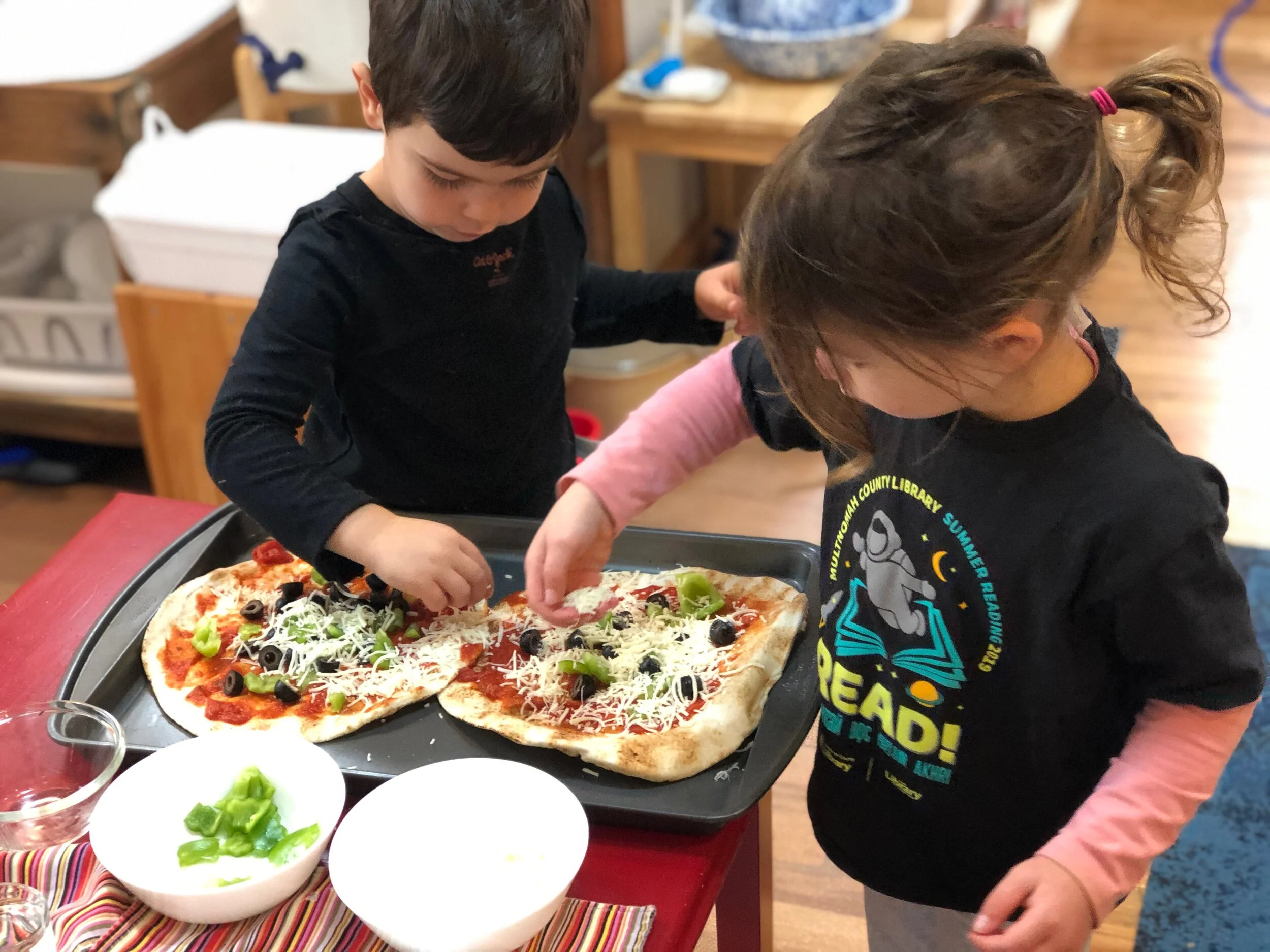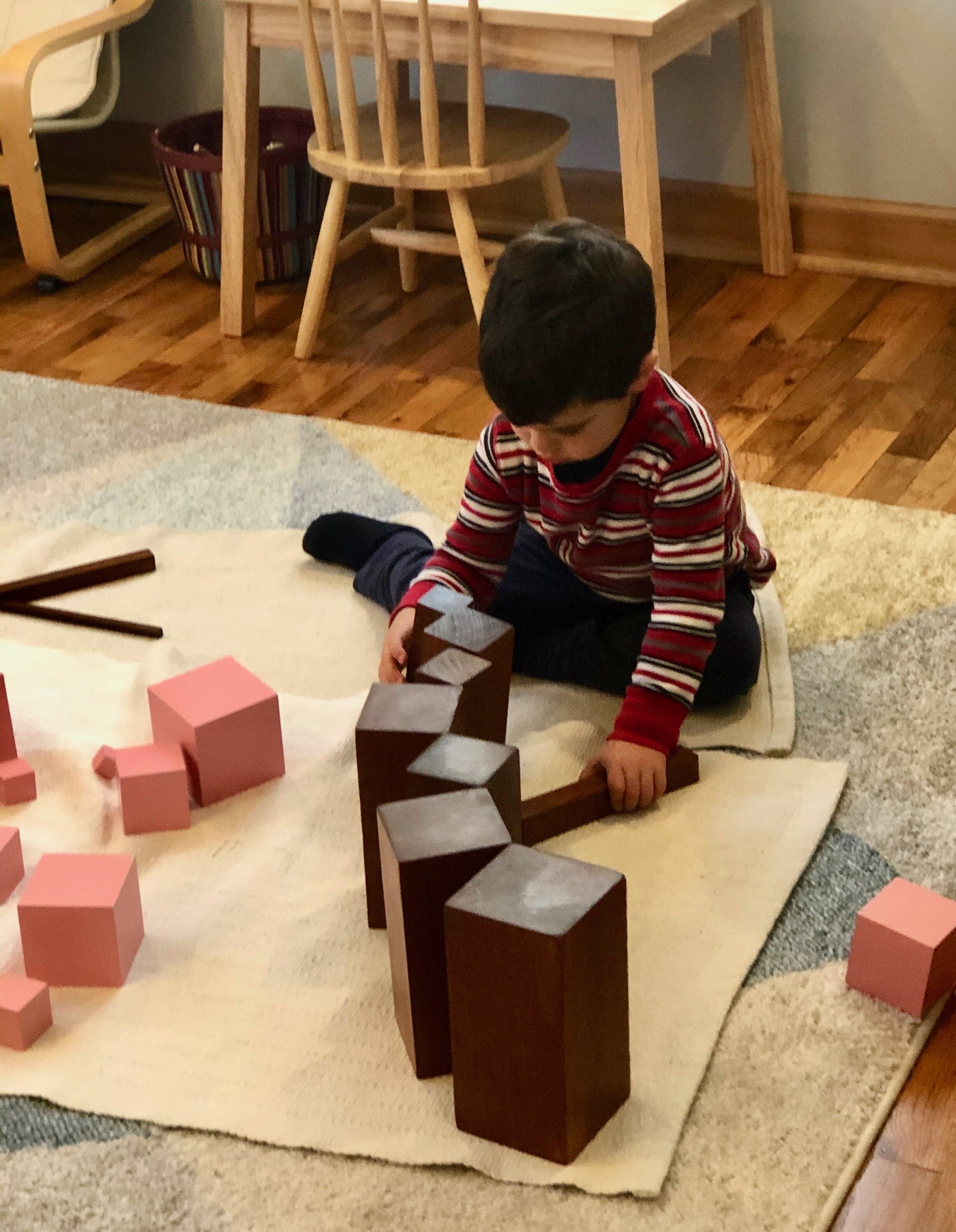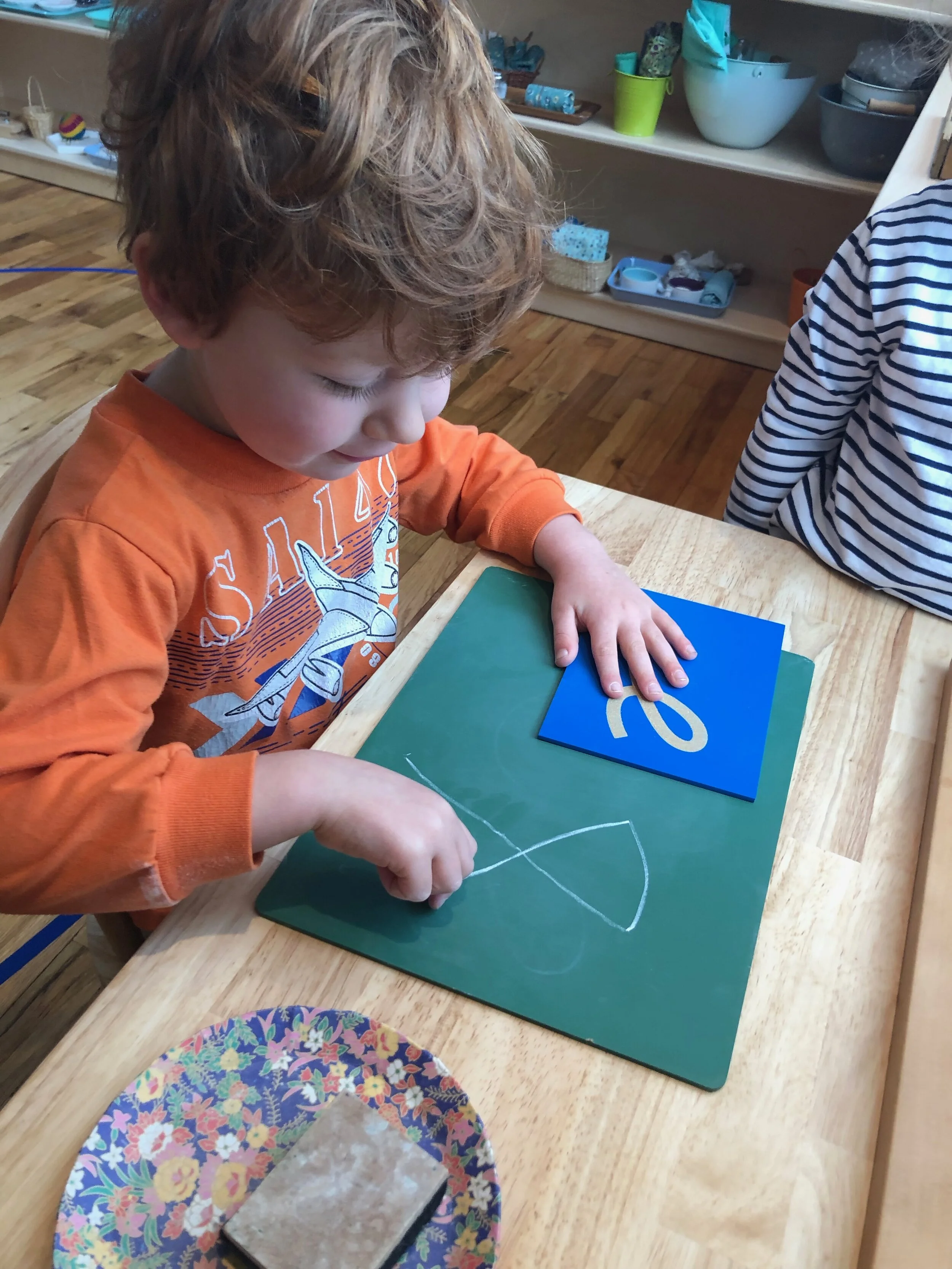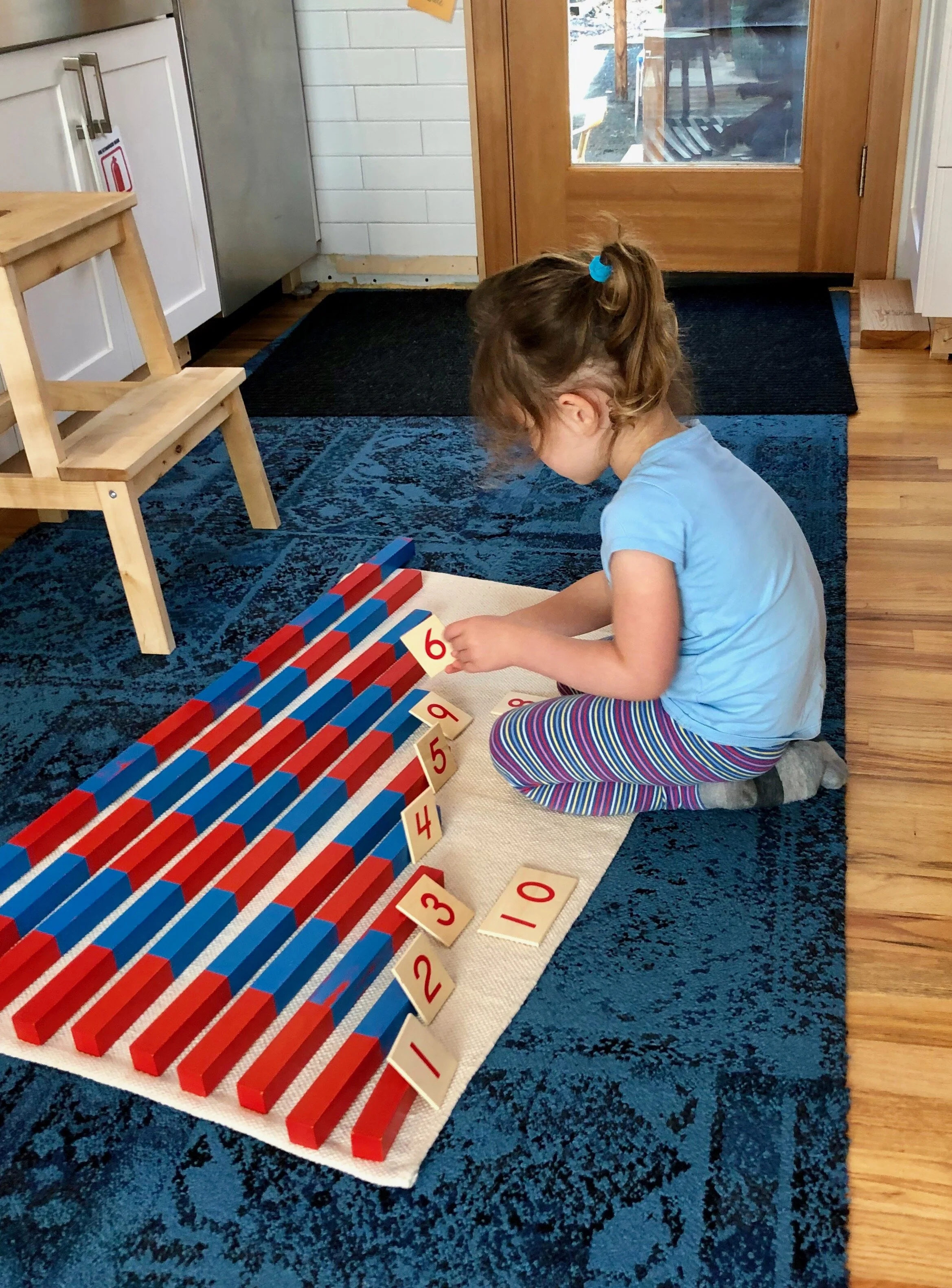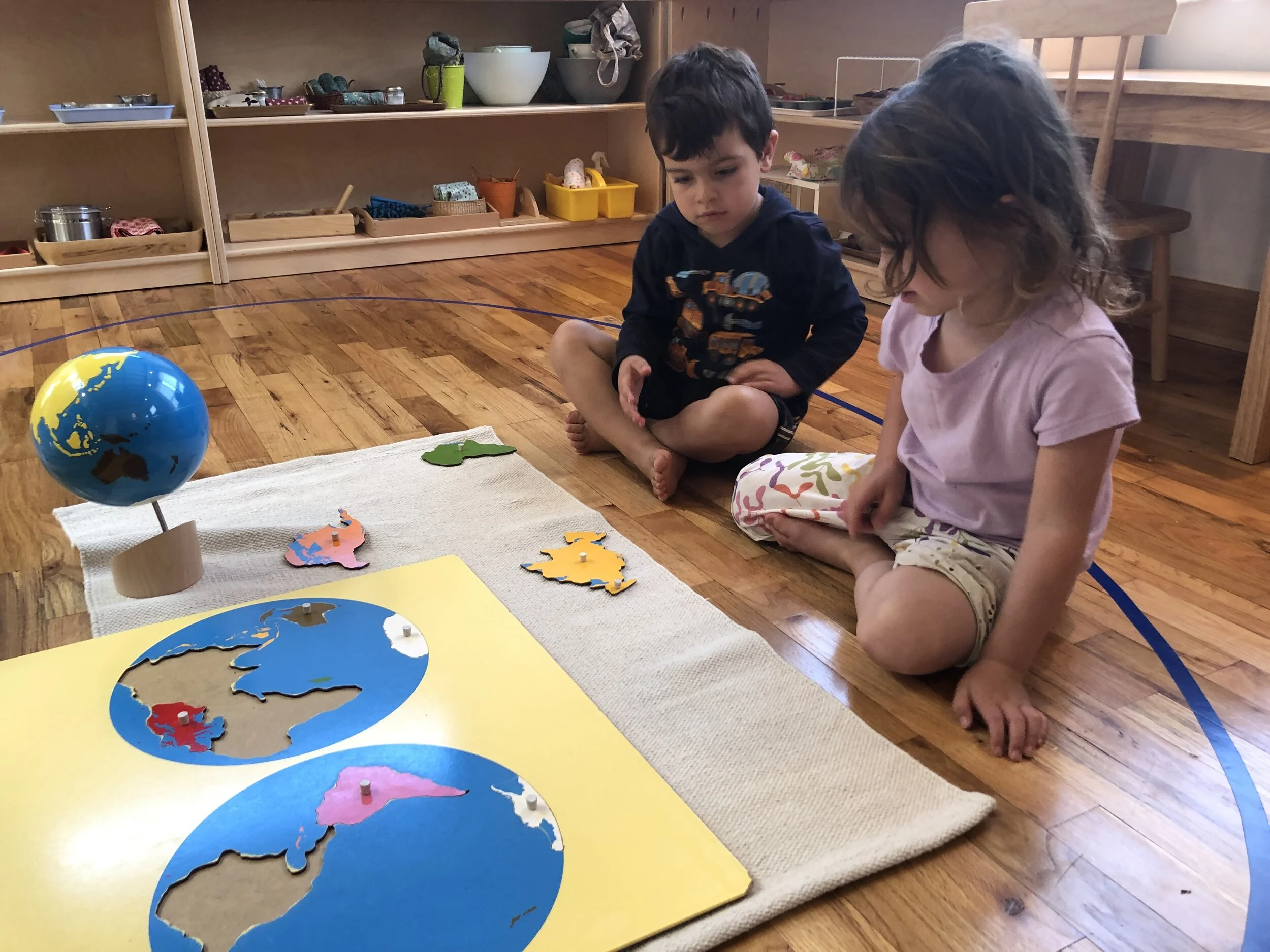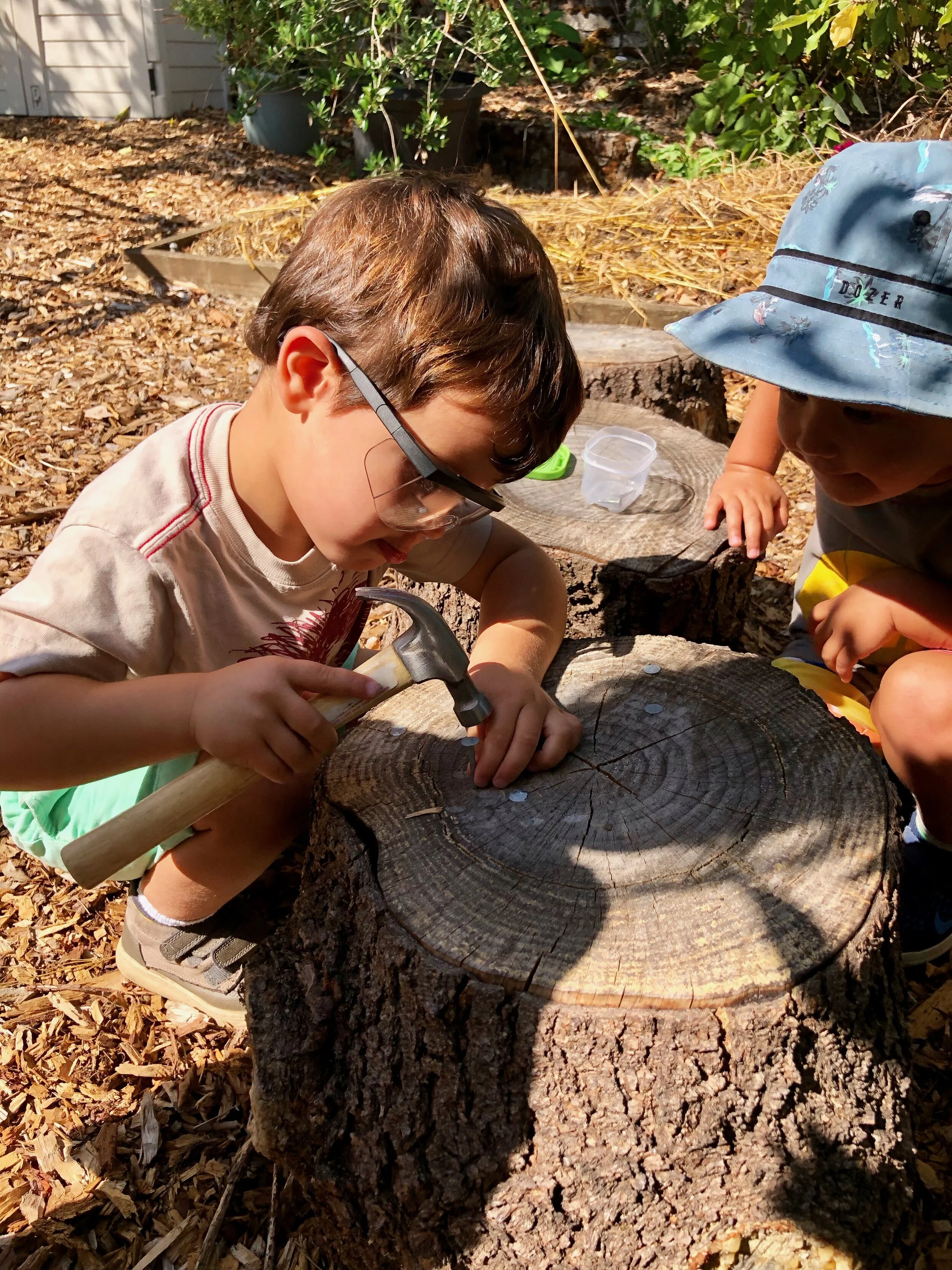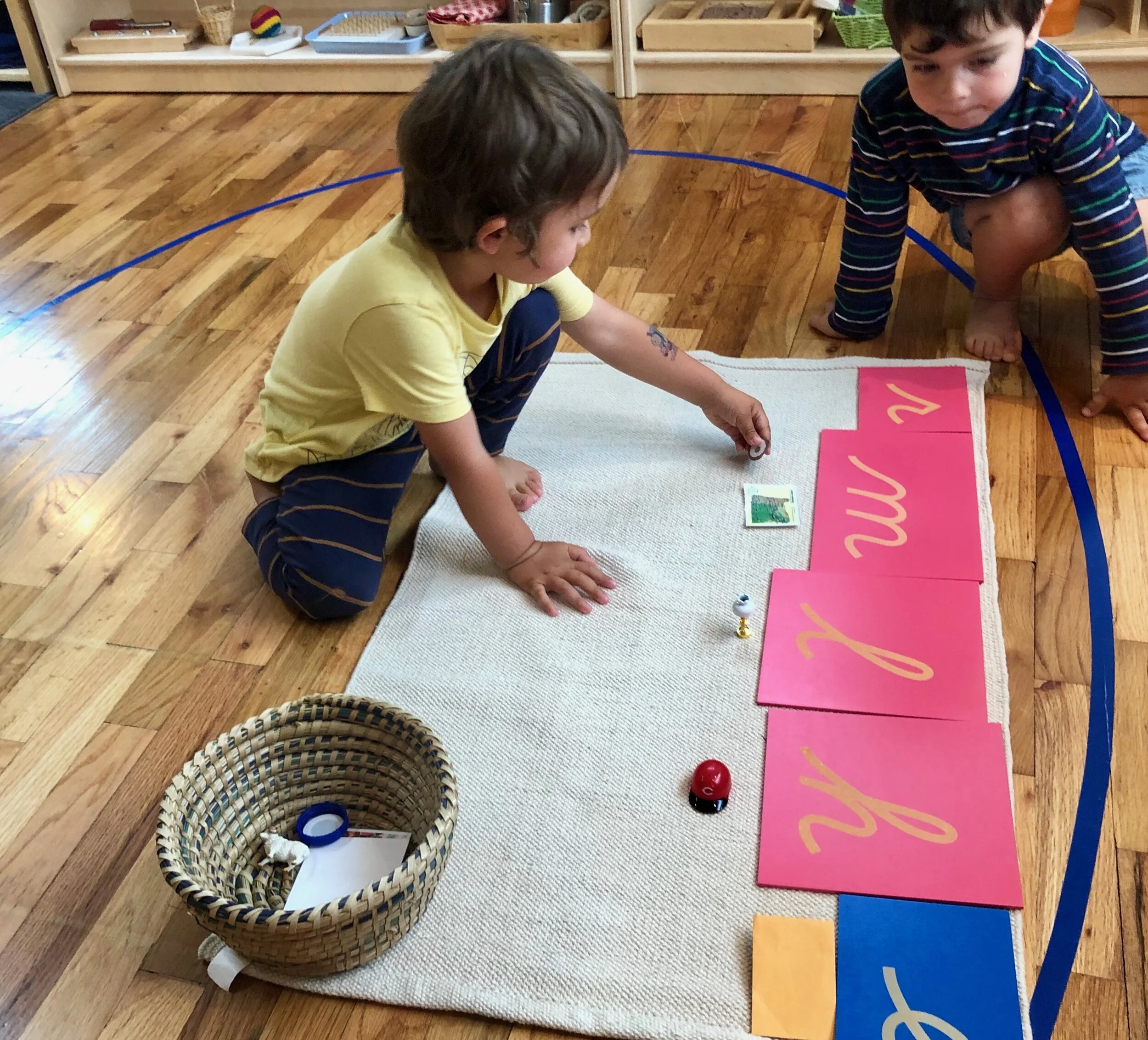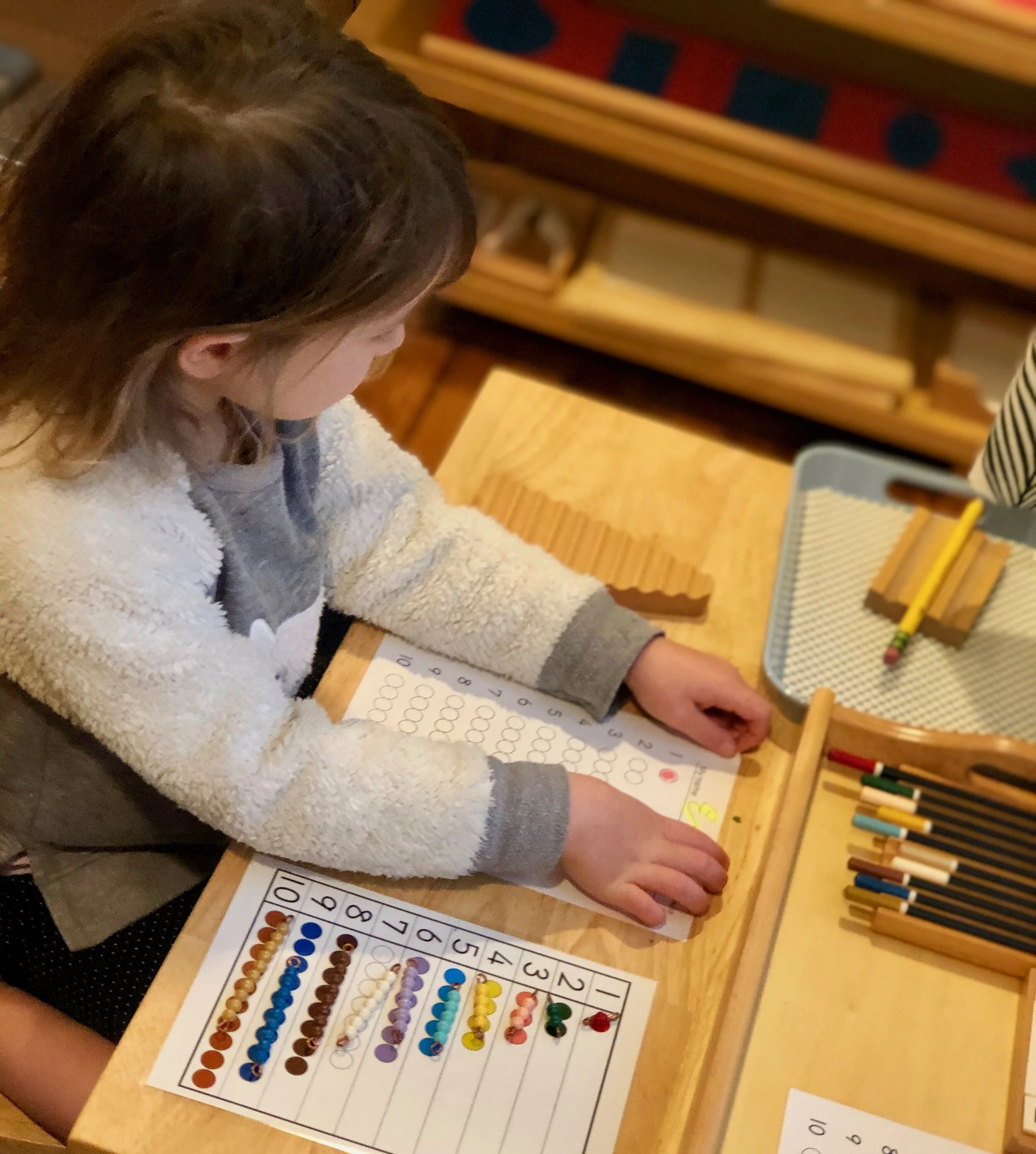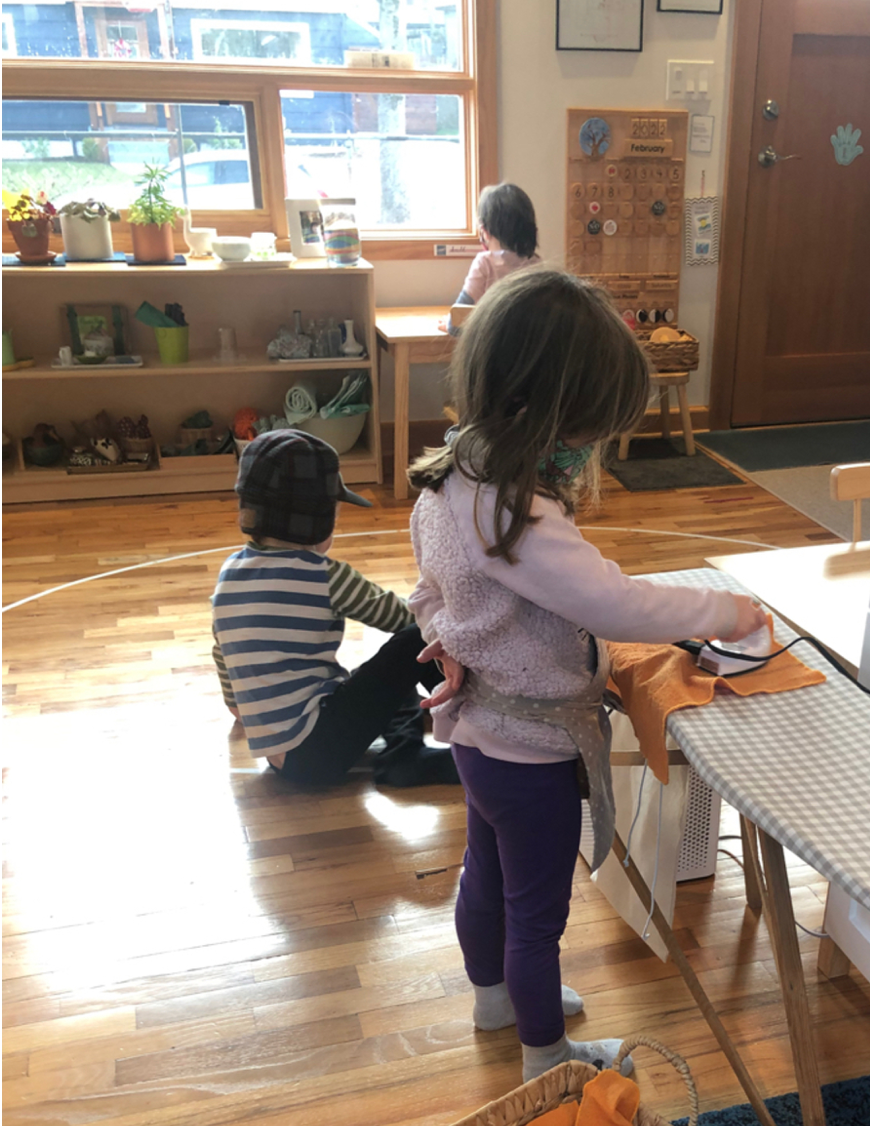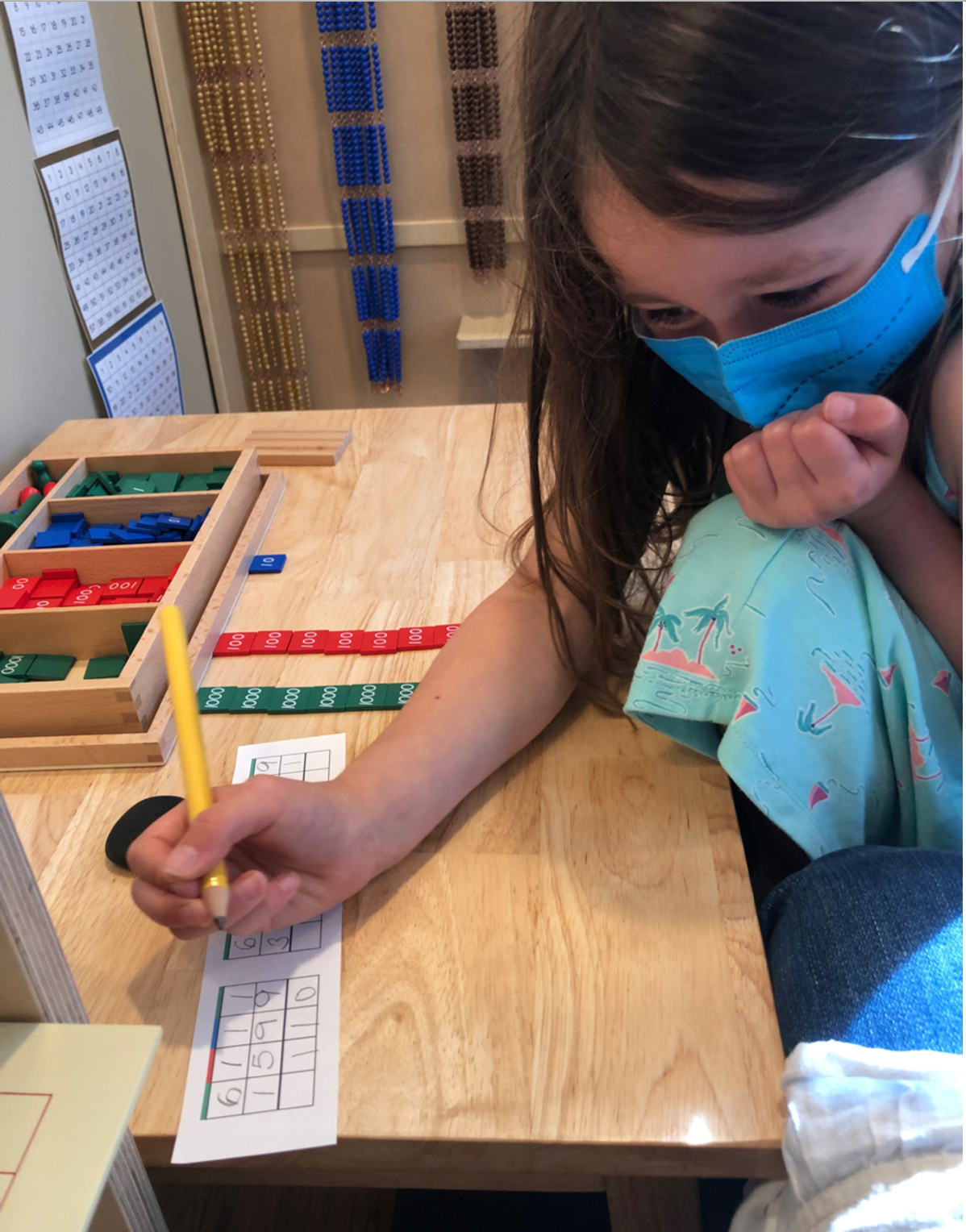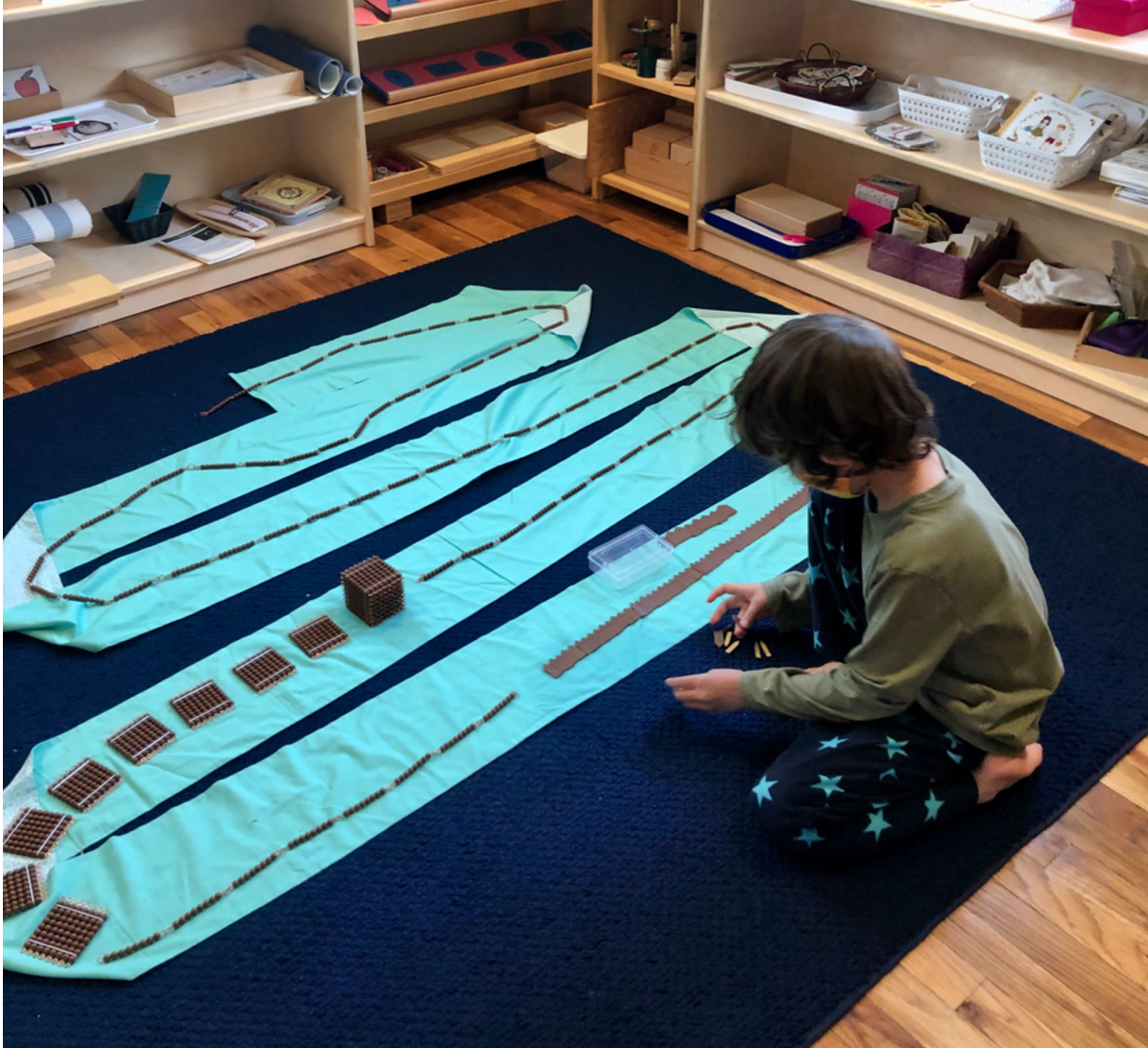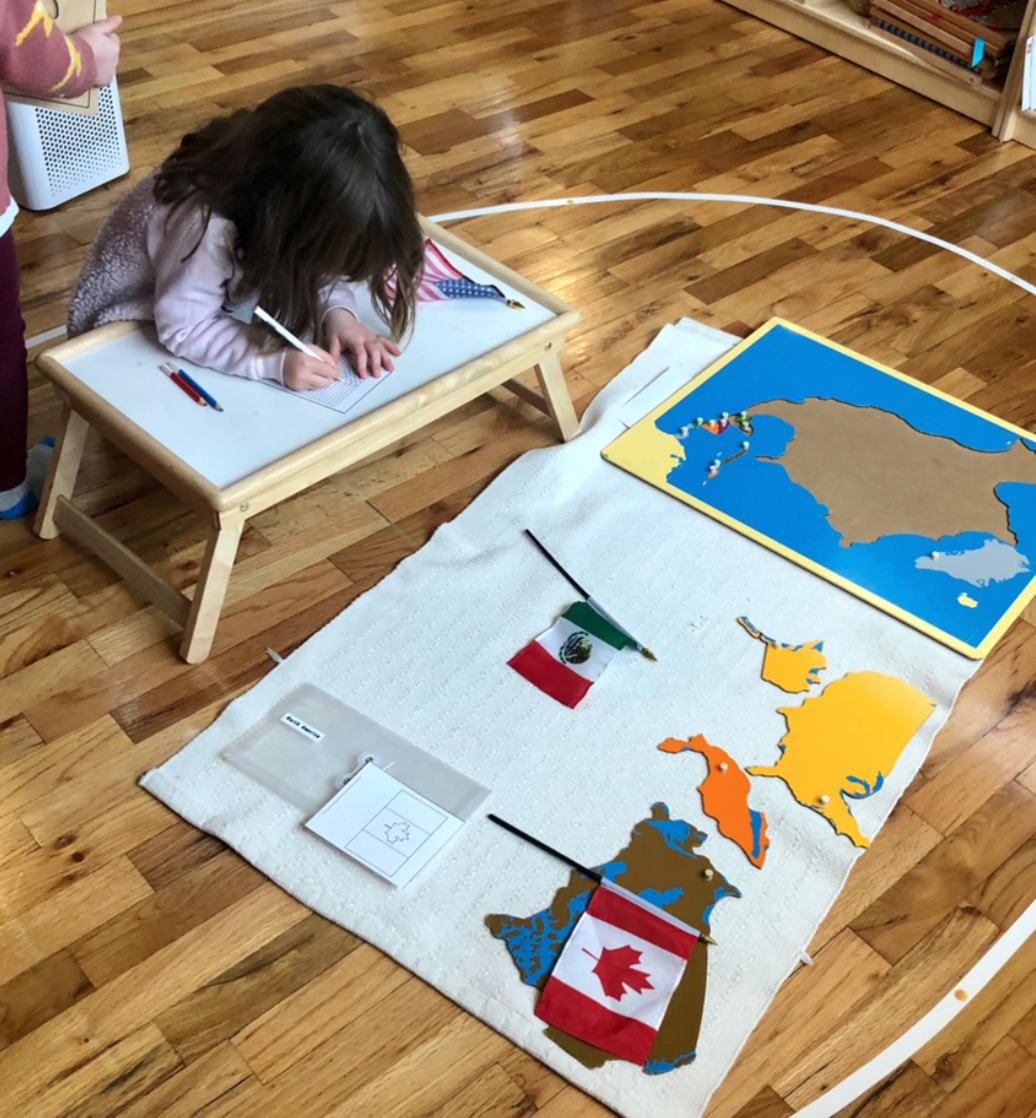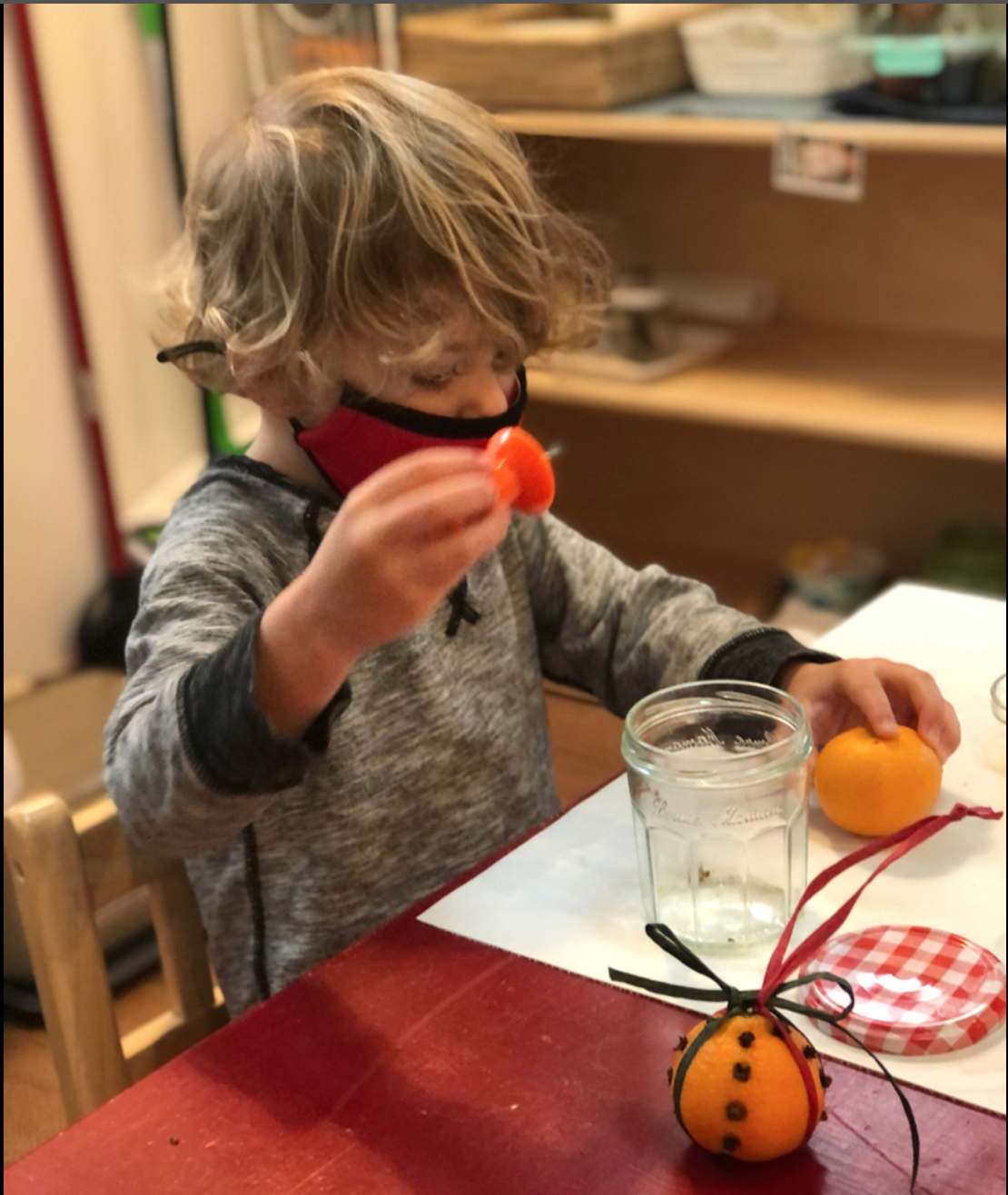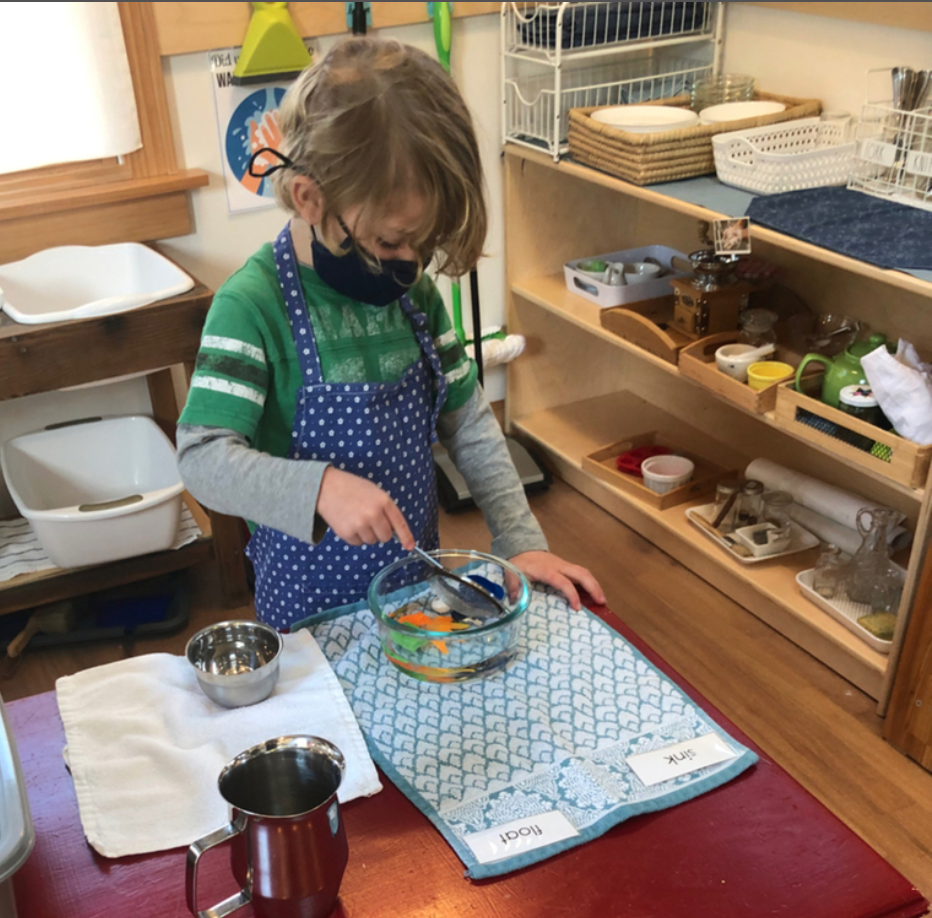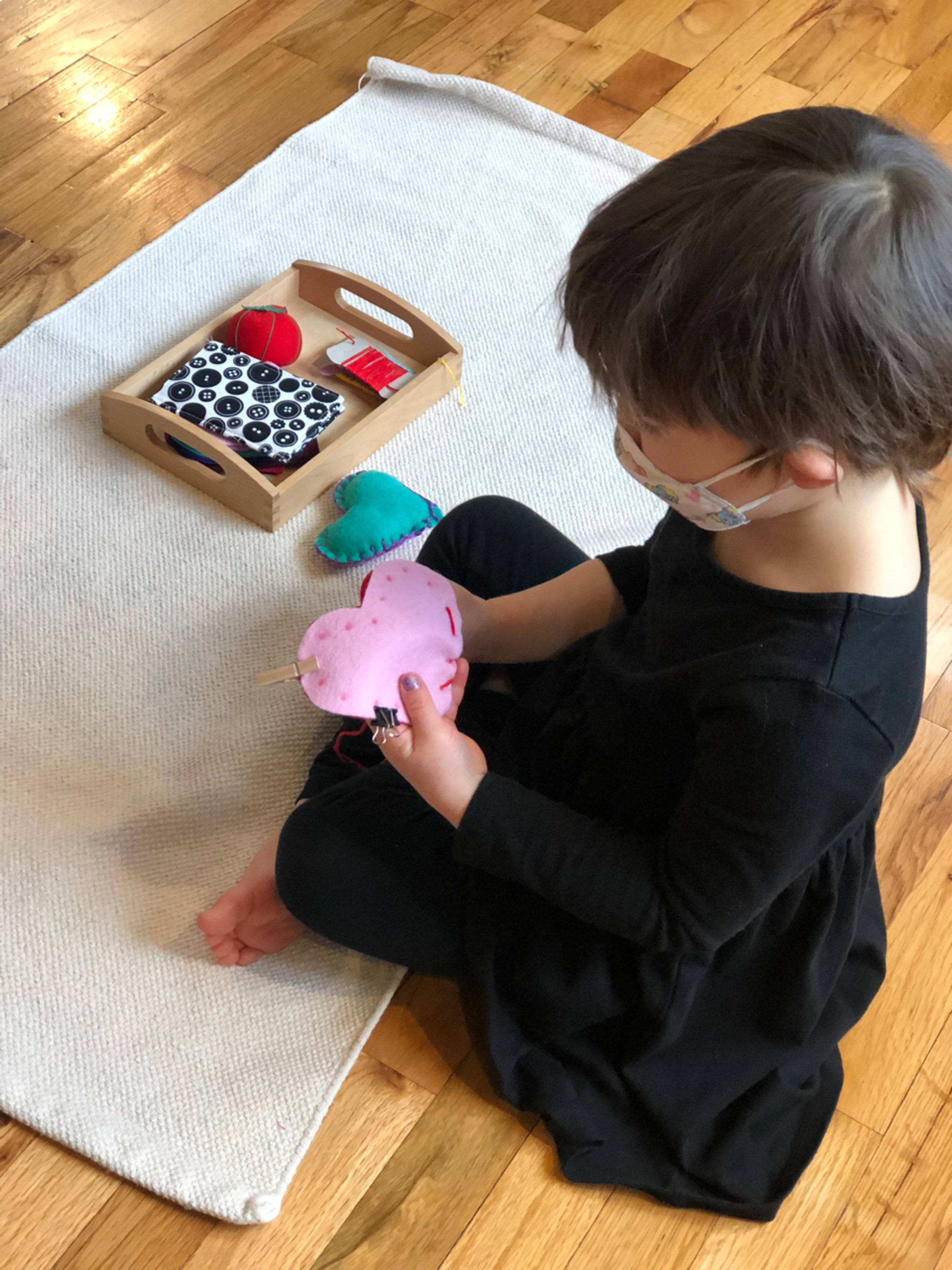JUMP TO: Why Montessori / Our Classroom / Daily Schedule
Why Montessori?
The Montessori Method is a child-focused educational approach that is based on scientific observations of child development. It takes the view that children are naturally eager to learn, and capable of absorbing a tremendous amount of knowledge through experiences in their environment. This method is hands-on, experienced based and follows the needs of the child and adapts to different learning styles.
The classroom is a carefully prepared environment that supports the child’s natural desire the learn. The classroom embodies elements such as natural lighting, soft colors, and uncluttered spaces to set the stage for activity that is focused and calm. Learning materials are displayed on accessible shelves, fostering independence as students go about their work. Everything is where it is supposed to be, conveying a sense of harmony and order that both comforts and inspires. In this safe and empowering environment, students find joy in learning.

